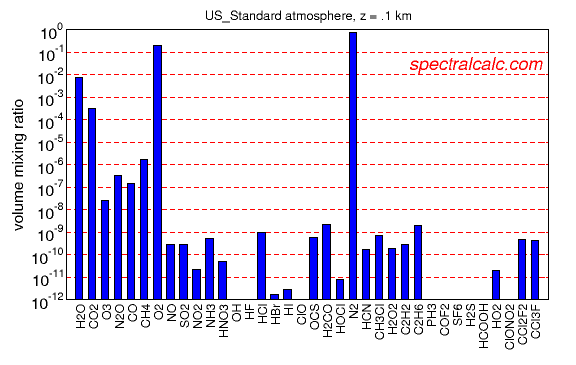Random, you surprise me. Are you pulling a "propaganda Dan?"
This article has very little merit in my eyes. Yes, Ozone is a very hazardous. That is a well known fact. Nitrogen Oxide is also rather unhealthy. NO has been nearly eliminated from auto exhausts. I see the article of mixing now and old facts with scare tactics. Ozone for example in the trace levels we see in the environment are harmless. It's like the levels of Chlorine you find in a swimming pool. Yes, some poeple are sensitive to it, but it's basically harmess. However, you wouldn't swim in Clorox, would you? Same thing, just a higher concentration. Right?
I find it offensive that the article does not talk anout levels. Here is some data from a MSDS on Triatomic Oxygen (O3, Oxone):
I didn't find CAT. I assume it means a cat! Since this is from a UK site, I assume they use cats for experimentations. I never seen this in a USA lab MSDS.General
Synonyms: trioxygen
Comment: Ozone is found in the atmosphere in varying proportions as it is produced continuously in the outer layers of the atmosphere by the action of solar UV radiation on oxygen in the air. It is also formed locally in the air from lightning and from electrical sparks. In the upper atmosphere it inhibits penetration of UV radiation and so is beneficial to life. At ground level it is a harmful pollutant because of the damage it can cause to lungs and to a wide range of materials.
Molecular formula: O3
CAS No: 10028-15-6
EINECS No:
----
Toxicity data
IHL-HMN TCLO thought to be near 1 ppm/2h.
IHL-CAT LC50 34500 ppb/3h
IHL-GPG LC50 24800 ppb/3h
IHL-HAM LC50 10500 ppb/4h
IHL-HMN LCLO 50 ppm/30m
Abbreviations:
ihl inhalation
hmn human
TCLo lowest published toxic concentration
gpg guinea pig
LC50 lethal concentration 50 percent kill
LCLo lowest published lethal concentration
ham hamster
Now notice how it says it's formed from lightning strikes and electrical spark? I can garentee you that more is formed my the motors in hybrid cars than what the article points to. This is an alarmist article Random. I'm surprised you fell for it.
Here is another MSDS on Ozone:
OZONE MATERIAL SAFETY DATA SHEET
They tend to vary slightly from one source to another.
As for lower doses causing cancer. Possibly. Ozone is probaly the most harmful free radical out there. Still, there is very little we can do to reduce man made levels, and I see it as laughable when natural levels are far higher. You only come across notable levels in controlled environments. We used Ozone in two of the jobs I had. I think I know a thing or two about it.
One more thing. Ozone can be a very small component of smog. Smog is not ozone.



 Reply With Quote
Reply With Quote





